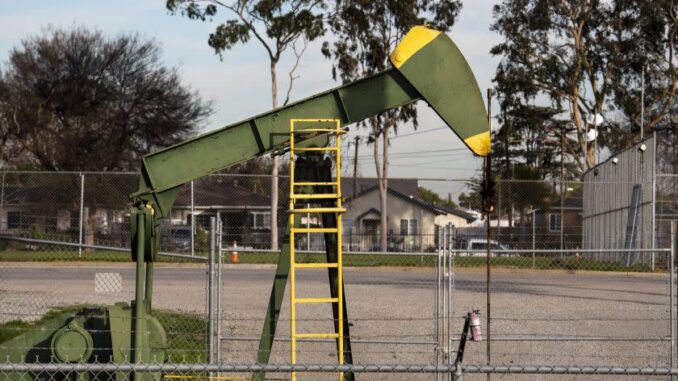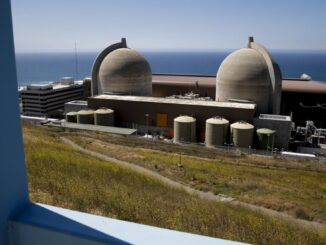
I remember, more than a decade ago, sitting down with a financial executive from the Church of England in a plush London office. The organization I co-founded, 350.org, had just launched its fossil fuel divestment campaign, and we were encouraging the Anglicans to join in, on the grounds that Exxon et al were helping to run Genesis in reverse. He looked at us, shook his head and explained that he had a much better route: “Engage” with the oil companies to get them to change their practices.
Ten years later the world is far hotter, the seas have risen considerably, and Big Oil is as steadfastly committed to its business model as ever. Last Thursday, the Church of England threw in the towel on engagement. It announced it would sell off all its oil and gas investments, because, even with making its goals clear to the companies, and with the persistent application of prayer, the big companies had done “not nearly enough” to ward off the gathering climate disaster.
Scientists and environmentalists also began talking with California’s big retirement funds, CalPRS and CalSTRS, 10 years ago, and they got the same answer: We will hold on to our shares and engage with the oil companies. The funds’ efforts at changing those companies have been no more successful than the Anglicans’ : Big Oil is expanding its drilling operations and cutting back on even token efforts at renewable energy. And so the time has come for CalPRS and CalSTRS to divest as well.
There is every reason for these public pension funds to pull their money out of fossil fuels. California’s been hit as hard as any place in the developed world by the climate crisis. These last 10 years have seen drought, flood and fire galore in the Golden State. And something else — by holding those stocks, California has cost itself a great deal of money.
In fact, a just-released report from the University of Waterloo, in Ontario, Canada, in partnership with Stand.earth found that CalPERS managed to lose $4.7 billion over the last decade, or $3,163 per pensioner, by staying invested in fossil fuel, and that the smaller CalSTRS managed to lose $4.9 billion, or an astounding $5,114 per beneficiary.
That’s because, along with being actively bad for the planet, fossil fuel has been actively bad for its shareholders. It dramatically underperformed other asset classes for the past decade, and for an obvious reason: A new industry, renewable energy, has arisen that delivers the same product, just more cheaply and cleanly.
Big Oil did manage to make money in the last 18 months, entirely thanks to Vladimir Putin’s invasion of Ukraine, but as the new report shows, that offered the pension funds just a scant edge of profit during that period and came nowhere close to making up for the losses over the last decade. Looking ahead to the next 10 years (and looking around California’s landscape), what seems like the wiser bet — that the world is going to go on burning hydrocarbons or that it’s going to make every effort to do something smarter?
It’s actually relatively easy for the Church of England and California pension funds to make this decision now because so many have paved the way. Almost every elite university — the UC system, Harvard, Princeton, Oxford, Cambridge — as well as huge public pension funds in New York state, Quebec and the Netherlands have divested. Advocates for full or partial divestment have included Barack Obama, Pope Francis and Queen Elizabeth II.
And though the engagement argument was always suspect, time has proved it utterly wrong. The oil companies have continued to lobby for delay on climate action, even as they’ve explored for new oil fields, built new pipelines, and in general committed political and environmental havoc. The divestment movement has been one of the few impediments to that arson. Peabody Energy, the leading U.S. coal miner, cited divestment as one reason it had to seek bankruptcy protection, and Shell has listed it as a material risk to its future.
In fact, you can measure that impact quite directly. The new study finds that had CalPERS divested a decade ago, its portfolio would have produced 10.8% less carbon, and CalSTRS about 17.6% less. That’s 32 million tons, or, according to the EPA’s greenhouse gas calculator, the annual carbon footprint of more than 3.5 million homes — almost the equivalent of a Los Angeles. Remember, if we don’t get climate change under control, the Golden State is slated to lose 70% of its beaches this century — the retirement funds are literally guaranteeing that the state won’t be worth retiring in.
It’s quite a trick to wreck the planet and lose billions of dollars in the process. But it’s not a trick worth repeating. California’s Senate Bill 252 would require CalPERS and CalSTRS to totally divest in the largest fossil fuel companies by 2031, and stop renewing or adding to existing investments starting next year. The bill is up for debate right now in Sacramento. California’s pensioners, taxpayers and young people deserve a break: The funds should divest from fossil fuels.



